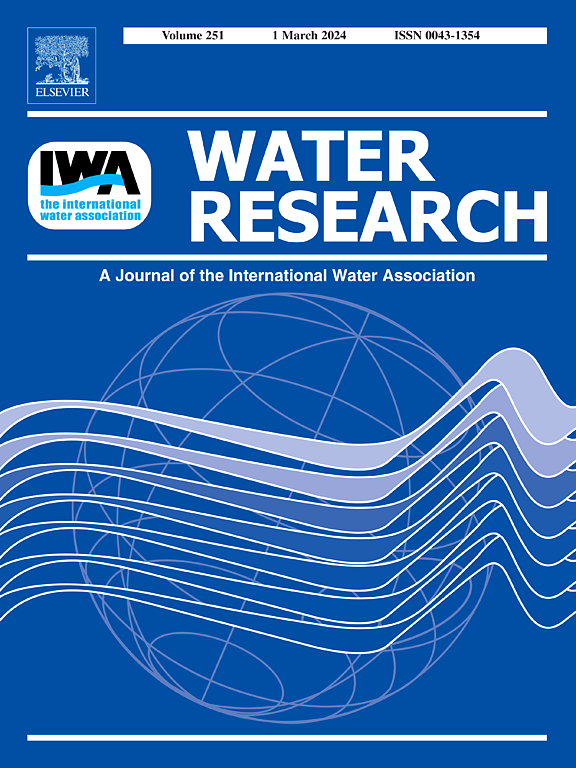Making waves: Report your quality assurance and control (QA/QC) information when publishing analytical data
IF 11.4
1区 环境科学与生态学
Q1 ENGINEERING, ENVIRONMENTAL
引用次数: 0
Abstract
Quantitative analytical chemistry is an important tool for the aquatic sciences, turning environmental samples into meaningful data that support waterbody management and novel research. However, proper use of analytical data must include full and transparent reporting of quality assurance and control (QA/QC) information, something we have noted as consistently lacking in recent literature. Herein, we briefly discuss QA/QC theory and approaches, with the goal of informing interdisciplinary researchers who may not have received formal training in analytical labs. The core of this perspective is eight recommendations for effective QA/QC reporting in scientific products, including discussions on how and where to construct a transparent and concise QA/QC summary. We also discuss how to report detection limits and sample sizes - two commonly excluded parts of QA/QC reporting in our experiences. We end with a discussion of recent positive examples of effective QA/QC reporting in water science, as well as five points around the importance of QA/QC information for the broader aquatic science community (i.e., students, supervisors/mentors, data managers, and journal editors). Collectively, improved QA/QC reporting will extend the reach, usefulness, and longevity of our scientific data and research, enhancing the fundamental purpose of scientific publishing.
制造波澜:在发布分析数据时报告你们的质量保证和控制(QA/QC)信息
定量分析化学是水生科学的重要工具,将环境样本转化为支持水体管理和新研究的有意义的数据。然而,正确使用分析数据必须包括完整和透明的质量保证和控制(QA/QC)信息报告,这是我们注意到在最近的文献中一直缺乏的。在此,我们简要讨论QA/QC理论和方法,目的是告知可能没有在分析实验室接受过正式培训的跨学科研究人员。该观点的核心是对科学产品中有效的QA/QC报告的八项建议,包括讨论如何以及在何处构建透明和简洁的QA/QC摘要。我们还讨论了如何报告检出限和样本量——根据我们的经验,QA/QC报告中两个通常被排除的部分。最后,我们讨论了最近在水科学中有效的QA/QC报告的积极例子,以及关于QA/QC信息对更广泛的水生科学界(即学生、导师/导师、数据管理人员和期刊编辑)的重要性的五点。总的来说,改进的QA/QC报告将扩大我们的科学数据和研究的范围、有用性和寿命,增强科学出版的基本目的。
本文章由计算机程序翻译,如有差异,请以英文原文为准。
求助全文
约1分钟内获得全文
求助全文
来源期刊

Water Research
环境科学-工程:环境
CiteScore
20.80
自引率
9.40%
发文量
1307
审稿时长
38 days
期刊介绍:
Water Research, along with its open access companion journal Water Research X, serves as a platform for publishing original research papers covering various aspects of the science and technology related to the anthropogenic water cycle, water quality, and its management worldwide. The audience targeted by the journal comprises biologists, chemical engineers, chemists, civil engineers, environmental engineers, limnologists, and microbiologists. The scope of the journal include:
•Treatment processes for water and wastewaters (municipal, agricultural, industrial, and on-site treatment), including resource recovery and residuals management;
•Urban hydrology including sewer systems, stormwater management, and green infrastructure;
•Drinking water treatment and distribution;
•Potable and non-potable water reuse;
•Sanitation, public health, and risk assessment;
•Anaerobic digestion, solid and hazardous waste management, including source characterization and the effects and control of leachates and gaseous emissions;
•Contaminants (chemical, microbial, anthropogenic particles such as nanoparticles or microplastics) and related water quality sensing, monitoring, fate, and assessment;
•Anthropogenic impacts on inland, tidal, coastal and urban waters, focusing on surface and ground waters, and point and non-point sources of pollution;
•Environmental restoration, linked to surface water, groundwater and groundwater remediation;
•Analysis of the interfaces between sediments and water, and between water and atmosphere, focusing specifically on anthropogenic impacts;
•Mathematical modelling, systems analysis, machine learning, and beneficial use of big data related to the anthropogenic water cycle;
•Socio-economic, policy, and regulations studies.
 求助内容:
求助内容: 应助结果提醒方式:
应助结果提醒方式:


